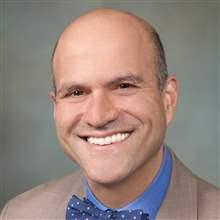This article originally appeared in Governing on May 15, 2017.
As the seemingly endless debate over our dysfunctional system of health care roils Washington, too little attention is being paid to the unique position state governments are in to influence the “rules of the road” that provide the basic operating environment.
In particular, states have the opportunity to bring more competition to our health care markets. That would help not only to control costs but also to stimulate the kind of innovation that characterizes so much of the rest of our economy.
Ensuring that markets function efficiently is critical to an effective health system that provides high-quality, accessible, affordable care.
Ensuring that markets function efficiently is critical to an effective health system that provides high-quality, accessible, affordable care. Research shows that patients, employers, and private insurers pay more for health care in highly consolidated provider markets – where, for instance, only one or two hospital systems exist. Higher health care costs lead to higher premiums. Even in public programs such as Medicare, a lack of competition among providers is associated with lower-quality care.
We propose a new “competition policy” for health care that involves multiple actors at the state level. State executive agencies, legislatures and attorneys general would play a more critical role than they do today, from adopting policies that encourage new competitors and ensuring transparency on quality and cost to preventing anticompetitive practices.
Promoting competition: To remove barriers and promote entry for new competitors, states should eliminate certificate-of-need regulations, which require government permission for a health care facility to be built or expanded, as well as “any willing provider” laws that require insurers to contract with any provider willing to accept the network’s terms. States also should amend their criteria for scope-of-practice decisions, the actions a practitioner can take within the terms of a professional license; the only justification for restricting scope of practice should be the safety of the public. States should not issue certificates of public advantage that, in shielding providers from federal antitrust action, impose oversight on provider collaborations and mergers. Finally, state licensing boards should facilitate practices that promote competition and innovation.
Bolstering transparency for consumers and providers: States should create and make public a core set of quality measures, and they also should give consumers the tools to compare costs by making public the total amounts paid to providers for various procedures. This could take the form of all-payer claims databases or a national claims data repository that utilizes common data elements and a common format. Insurers should be required to disclose out-of-pocket costs for health services that enrollees are considering. To provide this information, states should consider creating entities to engage in monitoring and public reporting on price, quality and other measures of health care performance.
Preventing anticompetitive practices: Mergers that pose risks of higher prices and lower quality should continue to be scrutinized. State antitrust enforcers should actively monitor and pursue the use of anticompetitive practices by health care and insurance firms. State legislatures should closely examine clauses and language in contracts between providers and insurers, while state insurance commissioners should review insurers’ contracts with providers. If commissioners have the power to reject problematic contract features, they should do so. If they do not have such powers, then they should draw problematic contracts to the attention of the offices of their attorneys general.
These are specific, actionable policies that can have an immediate and meaningful impact. States have the opportunity to take a leadership role in promoting policies that improve the functioning of the health care system and benefit all Americans. It’s an opportunity that states should seize now rather than waiting for solutions from Washington.
Farzad Mostashari has received funding from Aledade, Inc., where he is CEO, co-founder, and board member, which may have an interest in this work. He also serves as an adviser to NaviMed, which may have an interest in this work. In addition, he has received funding from the Indiana Primary Care Association and the American College of Chest Physicians unrelated to this work. Other than these disclosures, the authors are currently not officers, directors, or board members of any organization with an interest in this article.







Commentary
Op-edA competition prescription for our health care system
May 15, 2017